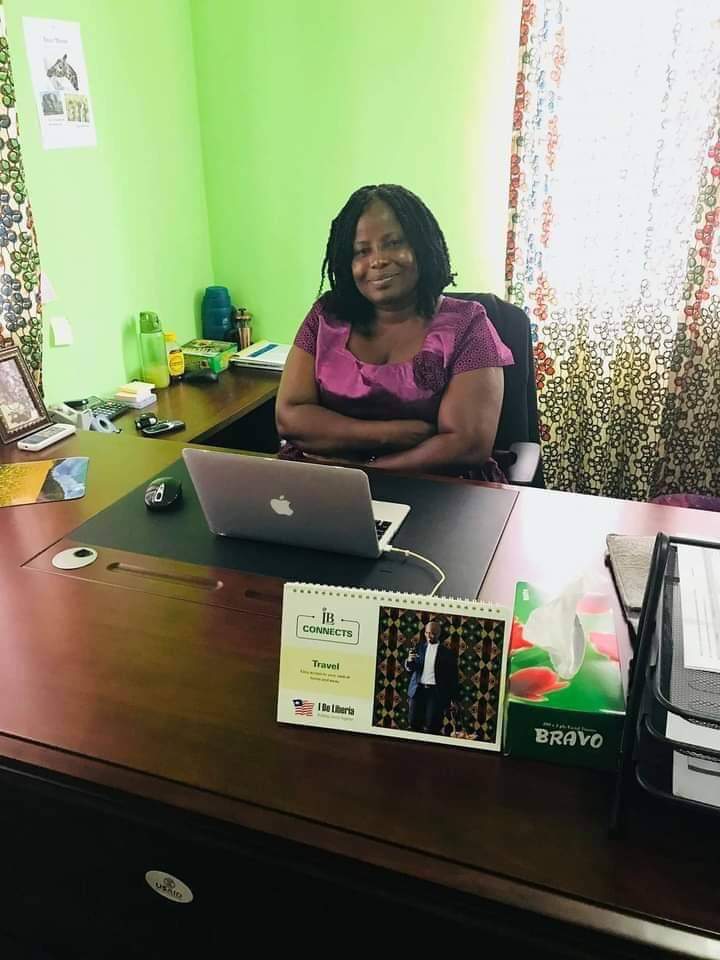“Government Must Act” -Women and Child Rights Activist Ne-Suah Beyan-Livingstone speaks on Gender Ministry’s Street Kids Report

Liberia-June 20, 2023: Madam Ne-Suah Beyan-Livingstone, an experienced and award winning women and child rights activist, has characterized as “alarming”, the Ministry of Gender, Children and Social Protection’s recent report on the number of street children in Liberia, and admonished government to act swiftly, before it exceeds the current status.
The Ministry of Gender, Children and Social Protection’s recent report shows that there are about 366, 585 (Three hundred and sixty-six thousand, five hundred and eighty-five) children that are living on the streets across Liberia.
In the view of Madam Livingstone, it is a serious threat to the state, and it has the propensity to result to a state of more vulnerable kids in years to come, especially if actions are not taken to adequately and promptly address it.
“If nothing is being done, I can tell you that you will have about 98 percent of Liberia’s population living on the street, now they are talking about kids, but don’t be surprise when you see the number of older people that will be living on the street because if they can’t pay their rent, if they can’t afford food to eat, very soon we will start to see them on the street”, she said.
According to her, the huge figure demonstrates a vivid indication of the failure of government to empower and uplift the lives of its citizens, as well as parents’ failure to provide the needed care for their children.
She believes much is not being done by government in terms of job creation and economic empowerment, as such, parents often find it challenging to meet their children major needs.
With this, Madam Livingstone wants government to empower its people, and straighten the various institutions that are charged with the responsibility to address the well-being of children in Liberia.
For parents, she said more unprepared people and teenagers are having children these, as such, they are always not in the position to give them the care they need.
Accordingly, she wants parents to be more committed and take their responsibilities very seriously, to help reduce the number of children living in the streets.
As highlighted by the Ministry of Gender, Children and Social Protection’s report, in Montserrado County, there are 153, 982 children that are living in the streets, and this is the highest of all counties, while there are 100 children that are residing in the streetS in River Cess, which happens to be the lowest of all counties.
Of the total number of children that are on the street, there are 126, 702 of them that are not in school at all.
The report which emphasizes multi dimensional poverty, as the major reason for the overwhelming number, list none persistent child support (father absence), limited access to education, abandoned children, teenage pregnancy and early parenting, child labour, peer pressure, children accused of being witchcrafts, punishment, kids walking baggers, children that have decided to be that way, and the presence of drugs in the country, as causes g the huge number..
It further confirms that children in Liberia are engaged in child labor all sectors, especially domestic services, street selling, rock crushing, mining, rubber industry and so on.
The Ministry over the last one year worked with several partners, including UNICEF to understand the situation of children living and selling on the street, and hired local and international consultant network to work with the Child Protection Network and all other NGOs that are involved with the issue of child rights, to produce the report.
In February of this year, Bong County District 6 Representative, Moima Briggs- Mensah raised concern about the recent wave of massive increase in the number of street selling kids across Monrovia, and called on authorities of the Ministry of Gender, and the Liberia National Police, to ensure that it is addressed in due time.
Of recent, there have also been a massive increase in the number of street selling kids on major streets in Monrovia, as well as children that are residing in the street.
Red light, Broad street, Capitol Bye pass, and other major commercial areas across Liberia are vivid evidences of the female lawmaker’s concern to the Liberian legislature
As reported by the World Health Organization (WHO) estimates that 64 percent of Liberians live below the poverty line ($1.25/day), with 1.3 million living in extreme poverty.
According to UNICEF 2020 report, Liberia has one of the world’s highest level of out-school children, with an estimated 15 to 20 per cent of 6–14-year-olds who are not in class.



